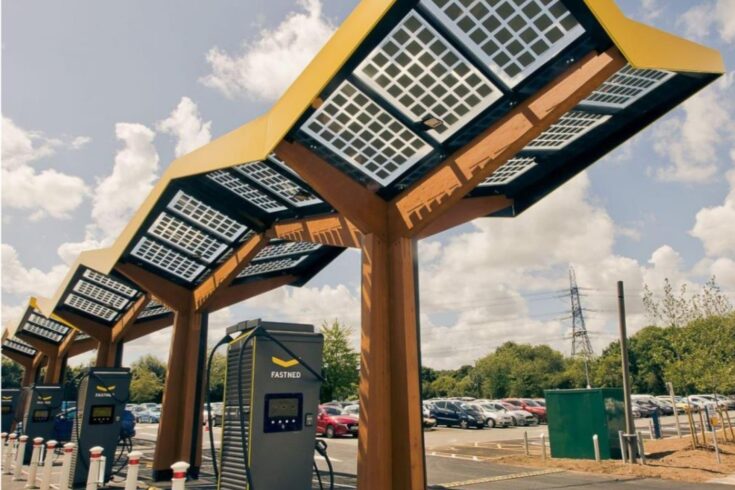A five-year journey of discovery
Looking back to the inception of the ‘Prospering from the energy revolution’ programme, as part of Greg Clark’s 2017 industrial strategy, it’s been an incredible journey.
So much has been delivered, discovered, and disseminated in the five years to the conclusion of funding in March 2023. The programme has exceeded its ambitious targets in many areas and created a globally unique evidence base on which to build a faster, fairer, better net zero transition for the UK.
And yet it also feels we have only taken the first steps towards much bigger outcomes.
A different kind of innovation programme
‘Prospering from the energy revolution’ was conceived in consultation with business, academia, and government. All were clear that there was an emerging opportunity that needed to be explored if we were to grow businesses while decarbonising the UK most effectively.
This opportunity wasn’t primarily about new technologies. Rather it was about how we intelligently join up existing power, heat, and mobility cleantech in a place, using emerging digital capabilities.
Optimising the system locally, where all these services are used, required new business models. It needed increased efficiency, flexibility and resilience, and new clean energy offerings for consumers that could lower bills and carbon. In this way, energy-smart places could become building blocks towards net zero.
So, the UK Research and Innovation-funded challenge programme, delivered by Innovate UK and the Engineering and Physical Sciences Research Council, was set up differently from traditional innovation funding.
A whole systems approach
It was as much about ‘how’ as about ‘what.’ It took a ‘whole systems’ approach involving multiple services, technologies, markets, financiers, consumers, businesses, academic disciplines, and government bodies.
The ambition to create and develop a new approach like this has produced unique results which more technology-focused programmes typically don’t achieve.
The programme brought together place-based whole-system demonstrators and design projects across the UK. It enabled new technical solutions where needed. And it added research and capability development via the EnergyREV consortium and the Energy Systems Catapult’s Energy Revolution Integration Service programme.
Real-world practical delivery was balanced with evidence-building and enhancing understanding of this area.
Far-reaching results
The key findings of the programme are stark and important.
Firstly, energy-smart places deliver better net zero outcomes. They create cleaner, cheaper energy for people and higher returns for investors. They also bring spill-over societal benefits worth hundreds of billions of pounds in productivity, better health, and pollution reduction, by optimising solutions in line with a place’s needs and resources.
Secondly, they help create a better national system by adding flexibility at the grid edge. This will be sorely needed in a renewables-dominated system in the future. £1 billion to £3 billion per year can be saved in national infrastructure-building by maximising the role of energy-smart places. At a time when building new grid connectivity is proving very difficult, this is a major benefit.
Thirdly, energy-smart places can accelerate multi-billion-pound markets for UK businesses to grow into, across the country. A place like Manchester is set to drive £3 billion of investment by 2030 in its net zero journey; a great opportunity for local businesses to grow into and provide high quality jobs for residents.
Companies in our programme have gained huge amounts of co-investment, confirming that investors want to help scale-up businesses developing solutions for these markets.
Policy and regulation must continue to evolve
But these are nascent findings, and capturing these benefits requires continued change in policy and regulation to embrace local delivery and help create market certainty.
We have already seen a significant shift in momentum. Ofgem is consulting on regional system planning and the Department for Energy Security and Net Zero is taking a keen interest in local area energy planning.
But a coordinative fabric that clearly aligns national policy and local delivery remains missing, and this is hindering scale-up. It is a barrier that underpins many others preventing faster development of energy-smart places – whether finance, investment, planning or skills shortages.
Missing critical step
We’ve also learnt a lot about running a novel programme like this. Demonstration in the real world and in real markets is a critical step that is often missing, but which uncovers all sorts of learning not anticipated. We must do more of that.
When creating programmes like this, it is also vital to build in adaptability to changing circumstances – whether a pandemic, or simply new learning. Stage-gating (critical go or no-go reviews) which enabled us to stop or re-direct activities, was invaluable. A flexible approach allowing quick movement into new areas of opportunity (for example, in our programme, data and digital) unlocks new avenues for ambitious businesses.
Getting the right diversity of people and viewpoints into the programme, whether in demonstrators, research or in the advisory group, has also been very important.
A rich resource
Synthesising the learnings from complex programmes like this takes huge effort, but that is where the magic lies: in answering the question ‘so what?’
As well as the big-picture perspectives, many projects highlighted in detail some of the dos and don’ts of setting up smart local energy systems.
Sharing all this learning is vital, so we have dedicated ourselves to producing insights from across the programme, and putting everything we know into a well-designed website open to all.
What’s next?
For Innovate UK, the next steps are clear. The programme’s findings and many of its projects have been integrated into our ‘Net zero living’ programme. This is helping a cohort of 50 places to target non-technical barriers to net zero delivery.
In parallel, we continue to work with businesses, local authorities, investors, and government organisations. We are helping them to share learnings, stimulate new markets, and help deliver better net zero outcomes for bill-payers and businesses right across the UK.
The ‘Prospering from the energy revolution’ programme has shown the huge opportunity available. Now, collaboration and coordination is required across government, local authorities, businesses and financiers to deliver the scale of action needed.
Further information
Visit the smart local energy systems web pages
Follow Innovate UK on X (formerly Twitter)
Connect with Innovate UK on LinkedIn
Follow Innovate UK on Facebook
Go to the new Innovate UK website
Sign up for our newsletter for the latest updates




